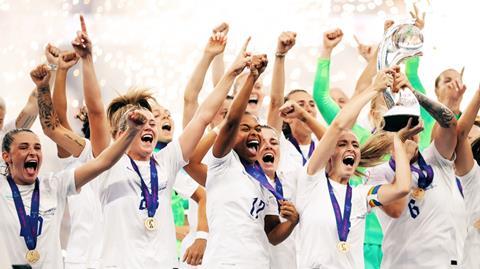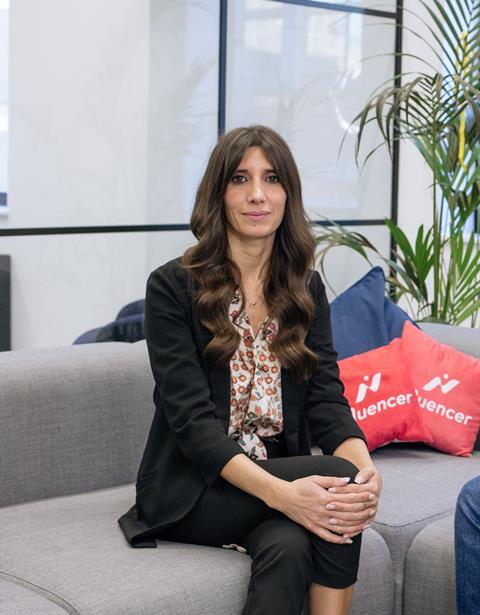Rachel Powney, global VP of marketing at Influencer, takes a look at how broadcasters could use social media stars

Where were you when England’s lionesses won the Euros in 2022? I love that I, along with 17m others who tuned in to watch, can answer this because it’s a moment etched in our memories. The pride, glory and sheer happiness that we experienced around not just the historic victory but also the acknowledgement of a sport and national team that has been so deserving of such an accolade.
As attendance at major women’s sporting events such as the FIFA World Cup, tennis Grand Slam tournaments, Rugby World Cup and cricket competitions such as The Hundred have increased, broadcasters have naturally dedicated more investment into covering them. This has led to a noticeable increase in sponsorship with more major brands recognising the value and potential. As we gear up to the FIFA Women’s World Cup taking place this summer, it’s a good time to remember how big this sport is becoming. Even though it’s just a few weeks away there is still so much potential for broadcasters and brands to tap into this moment and drive further engagement, emotional connection and profile.
The FIFA Women’s World Cup will attract millions of viewers from all over the world - and not just simply ‘football fans’ but women’s football fans. I make that distinction because women’s football stands on its own - it’s not a sub-brand, it’s its own powerhouse promoting inclusivity, equality and empowerment.
Where brand sponsors are pouring investment into social media and influencer marketing which harnesses fan bases and encourages athletes, themselves, to connect with fans, broadcasters need to be doing the same. Strategic partnerships with creators is a great way in getting to the heart of what growing numbers across the world are loving about this sport - the authenticity and incredible storytelling. It was no surprise to see TikTok become the main sponsor of the Euros last year detailing on its blog that the platform has seen over a billion views on the platform celebrating #WomenInSports.
Tapping further into the creator economy allows for broadcasters to also work directly with brands excited to experiment in this space during these big moment events. Alongside the big-name sponsors, such as Adidas and Dove, who are committing long-term campaigns of support, there’s an opportunity for broadcasters to work with more niche advertisers talking to sectors such as tech, automotive, personal care and retail and to move away from gender-specific campaigns to wider, more inclusive ones.
And let’s not forget how Influencer marketing can also be integrated into broadcasters’ traditional advertising campaigns to enhance their effectiveness and reach. It’s less surprising now to see content creators endorsing brands in traditional advertising campaigns, across TV, print and out-of-home.
Interestingly, 80% of marketers (according to a study by Vamp) said that influencer-generated assets performed the same or better than brand-created ones. Couple that with 41% of global sports fans streaming live sports through digital platforms and 32%, of which 43% are Gen Z, using social media whilst watching, there are vast creative opportunities to be using creators to support the broadcast coverage with meaningful content, adding to the fan experience.
Although we’re weeks away from this tournament kicking off, it’s not too late for broadcasters to be positively getting in on the action. Where it’s crucial to partner with creators whose values and audience align with a brand’s objectives, broadcasters can still be looking to partner on campaigns that can enhance brand awareness, credibility and engagement. With the growing number of creators dedicated to supporting the women’s game, this is a great time to be experimenting, generating positive brand associations and contributing to the advancement of the sport. There are still quick and effective ways to be at the forefront of this tournament and of this cultural shift, and the right creators can support these efforts very effectively.

Rachel Powney is global VP of marketing at Influencer.




No comments yet